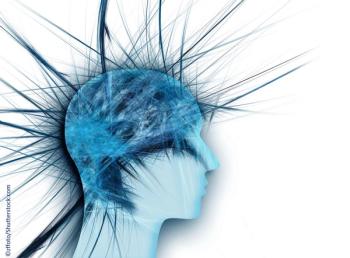
How closely did a recent New York Times article depict psychiatric practices across the country?

How closely did a recent New York Times article depict psychiatric practices across the country?

The most important question is whether the new diagnostic criteria are an improvement. . . . I am highly skeptical that they are.

As experts in neurobiology, we can conduct and critically evaluate research to identify the short- and long-term risks and benefits of neuroenhancers for patients without recognized clinical indications.

On April 1, a secret source let me in on a special addition to the new “Obamacare” healthcare reform law, which just had its 1-year anniversary. It will be released by the new Convocation speaker at the upcoming annual American Psychiatric Association (APA) meeting in May.

The Alliance for Human Research Protection is attempting to draft me as an unwilling soldier in its dangerous campaign to discredit psychiatry and to discourage psychiatric patients from staying in treatment and taking medication.

The health reform legislation is likely to affect all mental health professionals throughout their lives, both as consumers and as practitioners of health care services.

Mixed depression is defined as a major depressive episode (MDE) with concurrent manic or hypomanic symptoms that are insufficient in number for a patient to meet the criteria for mixed hypomania.

Dr Weissman discusses psychiatric residency recruitment by looking at the forces that affect a student’s selection of a psychiatric career rather than at what the influences have been during the past 5 years.

Mixed states constitute a wondrously variegated universe of psychopathology. These states are characterized by the intrusion of features characteristic of depression into states of hypomania or mania and the converse. Mixed states assume a myriad of forms that as a family may be among the most commonly encountered states of affective illness.

I’d like to respond to Dr Cacciatore’s concerns and comments, as well as to some points raised by other readers. I also want to acknowledge the deep pain of those who have lost loved ones, and who have written in to this Web site.


Writers of diagnostic criteria should consider their work and all its implications. What about adding a new disorder? What might that do to epidemiological capture? Depending on the characteristics of the diagnostic criteria set, many possibilities exist.


Addressing a few subjects that may have the potential to create a more insidious and enduring form of misrepresentation ... namely, the implications that psychiatrists must now “play the game,” and resign themselves to a bleak future of harried pill dispensing.

During what season is suicide most common among college students? These questions and more in this week's quiz.

All members of the mental health community opposed the use of standardized testing to determine deviations from the mean. But the consensus fell apart thereafter.

Discuss the results of the final cognitive testing, review the participant’s initial goals and the progress made toward them, and discuss future ambitions and how the gains made during cognitive training may help the participant achieve those goals.

This article reviews methods to rehabilitate cognition in schizophrenia and suggests strategies for instituting a cognitive remediation program.

Much resistance to disorder status for the psychosis-risk syndrome stems from the fact that only a minority of those given the diagnosis really have the disorder.

This article highlights the biological and clinical links between the two disorders, reviewing shared genetics, brain changes, and similarities and differences in clinical presentations.

In this blog, Annemone Ligensa reviews The King's Speech from a psychological and historical perspecive.

Clinicians have long recognized that many of the psychiatric disorders lack clear boundaries, and that there is a substantial overlap in phenomenology and etiopathophysiology of various disorders.

For Sponsorship questions: Jules LeoJules.Leo@ubm.com 201-984-6267Cindy FlaumCindy.Flaum@ubm.com 201-984-6266Help with registration:showsupport@ubm.com

Dr. Joel Yager“How to Have a Career- and Make a Living- While having a Life: Career Planning in the Context of Life Planning”

The title of Gardiner Harris’s front-page story in the March 6 New York Times was blunt: “Talk Doesn’t Pay, So Psychiatry Turns Instead to Drug Therapy.” For those of us who see our profession as a humanistic calling, this piece is likely to provoke a mixture of sadness and anger.



Dr McIntyre discusses bipolar disorder and several studies in medical comorbidity in general and more specifically neurological comorbidity.

The New York Times of February 14 carries the disturbing news of an alarming increase in deaths from accidental overdose among our active duty military personnel and our war veterans.

In previous blogs and papers, I have done my level best to skewer the misuse of the misdiagnosis "Paraphilia NOS." I regard it as no more than a flimsy justification, concocted to allow the psychiatric incarceration of rapists who would otherwise have to be released from prison to the street.